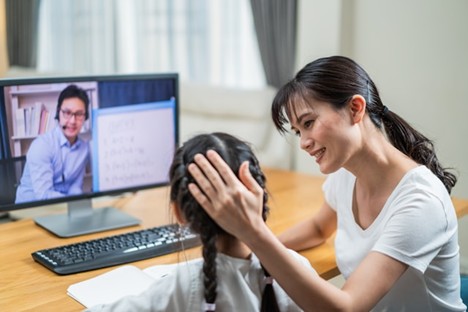
The end of the school year brings a range of emotions - pride in accomplishments, relief from routines, excitement for summer, and sometimes a touch of nostalgia. For students and families engaged in online schooling programs, it's also a valuable moment to reflect on a year filled with unique experiences, challenges, and milestones achieved in a virtual setting. Whether this was your first year navigating online learning or you're nearing the end of your high school education, thoughtful reflection helps recognize what worked well, uncover areas for growth, and build momentum for the upcoming school year.
The following article discusses practical strategies for students and families to reflect on their learning journey, celebrate achievements, and set meaningful goals for continued success in the virtual classroom.
One of the most important parts of ending the school year is celebrating the hard work and dedication it took to get there. In a cyber school setting, it’s easy to overlook achievements that aren’t marked by school assemblies or classroom bulletin boards. But that doesn’t make them any less meaningful.
Ways to Celebrate:
Create a Year-End Portfolio: Gather favorite assignments, essays, projects, or artwork to showcase progress.
Make a Highlight Reel: Use video or photos from throughout the year to compile a digital memory book or slideshow.
Write a Thank-You Letter: Encourage students to write a note to a teacher, classmate, or parent who helped them succeed.
These celebrations not only acknowledge academic success but also promote confidence and a sense of accomplishment.
Reflection helps students take ownership of their learning. Encourage your child, or do this as a family, to think through the year with a thoughtful review.
Reflection Questions for Students:
Reflection Questions for Parents:
Cyber schools often provide access to detailed reports and dashboards. Use this data to look at progress over time. This includes:
Look beyond just letter grades. Focus on growth, effort, and consistency. Even if a student struggled in certain areas, they likely gained valuable experience in self-management, technology use, and virtual communication.
For older students, reviewing academic progress can also help with planning high school coursework, college readiness, or career exploration.
Time management is one of the most crucial skills for success in cyber school. Reflecting on how time was used this year can provide powerful insights.
Ask:
Did we have a consistent daily routine?
Was screen time balanced with offline activities?
Did assignments get completed on time?
Were breaks and downtime scheduled effectively?
If time management was a struggle, summer can be a great time to experiment with new routines, calendars, or time-blocking strategies that better suit your family’s needs.

Cyber school teaches students much more than academics. It builds essential digital literacy skills that will serve them for life.
Encourage students to evaluate:
How confident are you with navigating learning platforms?
Can you troubleshoot common tech problems on your own?
Are you able to collaborate with others using virtual tools?
Do you use the internet safely and responsibly?
If there are gaps, consider summer enrichment activities like online tech camps, digital citizenship courses, or personal tech projects to sharpen these skills.
Cyber learning can sometimes feel isolating, especially without daily face-to-face interaction. Take time to recognize and appreciate the relationships built during the school year.
Ways to Stay Connected:
Send a thank-you message to teachers or support staff.
Schedule a virtual hangout with classmates.
Join any year-end online events or forums the school offers.
Maintaining social connections is vital to student well-being and creates a sense of continuity as students transition to a new grade.
One benefit of cyber schooling is the flexibility to personalize your learning environment. As the year wraps up, take time to tidy and prepare your digital and physical learning spaces.
Organize and Archive:
Prepare for a Smooth Start:
The end of the school year doesn’t mean learning stops. Summer offers a chance to explore interests, reinforce skills, and avoid the dreaded “summer slide.”
Ideas to Keep Learning Alive:
Even just 15–30 minutes a day of structured learning can help students stay sharp and confident heading into the fall.
Cyber school can be mentally and emotionally demanding. As the year ends, take a pulse on your student’s well-being.
Ask:
How did this school year feel emotionally?
What was stressful, and how did you handle it?
What brought you joy or a sense of accomplishment?
Parents should also check in with themselves - supporting online learners often means juggling work, tech support, and emotional guidance. Taking time to rest and recharge during summer is important for the whole family.
With the lessons learned this year, students and families can set empowering goals for the next. These might include:
Write these intentions down and revisit them before the new year begins. Setting a positive tone now makes a big difference in student motivation later.
Turning Reflection into Momentum
Reflecting on a successful cyber school year is more than a feel-good exercise - it’s a strategic step in helping students become more self-aware, resilient, and prepared learners. Celebrate your family’s hard work, honor the growth that took place, and use what you’ve learned to build an even stronger foundation for the year ahead.
Cyber school offers flexibility, independence, and rich learning opportunities. By closing out the year with reflection, celebration, and intention, families can ensure these benefits are fully realized - not just now, but for years to come.